When talking about major Internet events in 2023, there are two things that are impossible to avoid: one is that Pinduoduo’s market value surpasses Alibaba, and the other is that ByteDance’s (hereinafter referred to as Byte) revenue in the first half of the year exceeded that of Tencent.
With two phenomenal products, Toutiao and Douyin, ByteDance has almost fully reaped the dividends from domestic traffic. When domestic traffic gradually peaked, TikTok opened up a new situation in overseas markets and became an important source of growth for ByteDance.
The dazzling software products have concealed Byte's hardware ambitions. In fact, hardware has always been one of the important ways for Byte to find new scenarios and expand new users. In the past seven years, Byte has tried mobile phones, educational hardware, VR and other hardware products, but the final results were not ideal.
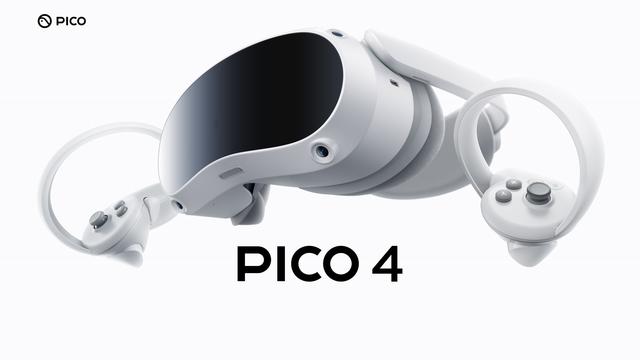
Source: Pico
With the rise of generative AI technology, and as more and more 3C manufacturers and Internet companies focus on hardware, many people in the industry regard 2024 as the "first year of AI hardware". In addition to mobile phones and PCs, headphones, glasses, etc. It has also begun to usher in the trend of AI transformation.
Byte is no exception. While exploring large models, it also came up with the idea of making AI hardware.
According to LatePost reports, Byte is developing an AI headset with a large model of Doubao embedded in it. The product will be linked with the Doubao App. After users put on the AI headset, they can use Doubao at any time through voice dialogue, and can also control the headset on the Doubao App.
Friends who usually pay attention to Byte's trends should have expected this. In May this year, it was reported that Byte acquired Chinese headphone manufacturer Oladance for approximately US$50 million, which is its latest move to develop wearable devices. Recently, "Science and Technology Innovation Board Daily" reported that Byte has completed the acquisition of open-back headphone brand Oladance and achieved 100% control.
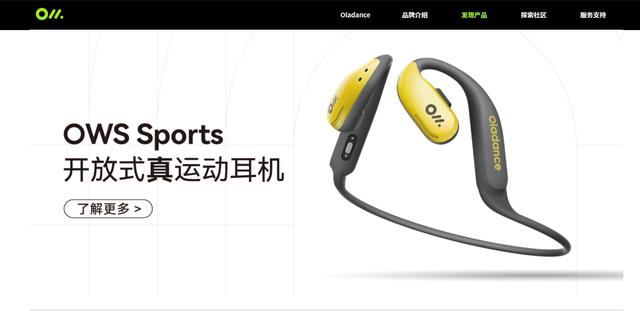
Source: Oladance official website
Founded in 2019, Oladance is positioned as an innovative consumer electronics technology. It first proposed OWS (fully open wearable headphones) patented technology and launched the world's first OWS fully open headphones. At present, Byte's AI hardware team is mainly based on the original Oladance personnel. Therefore, it is not surprising that Byte chooses smart headphones as its first AI hardware.
Before the arrival of the AI trend, Byte also made attempts in hardware.
At the end of 2018, ByteDance spent hundreds of millions of yuan to acquire the Smartisan Nut mobile phone team and some patent rights. Based on Smartisan's Nut mobile phone team, the "New Stone Laboratory" was established. In the following two years, New Stone Laboratory released two generations of Nut mobile phones, new TNT display products, speakers and other peripheral products, and also integrated Nut mobile phones R2 and The display TNT Go is integrated into the "LKP" set in an attempt to develop office scenarios.
Unfortunately, the market response to hardware developed for office scenarios has been mediocre. Byte has adjusted the focus of "New Stone Laboratory" to the educational hardware track. In October 2020, ByteDance announced the launch of the "Dali Education" brand and would undertake all its education products under the brand name. Byte then released its first educational hardware, the Dali Intelligent Learning Lamp. At ByteDance’s ninth anniversary speech in 2021, Zhang Yiming listed it as one of the businesses that the company has made progress in the past year.
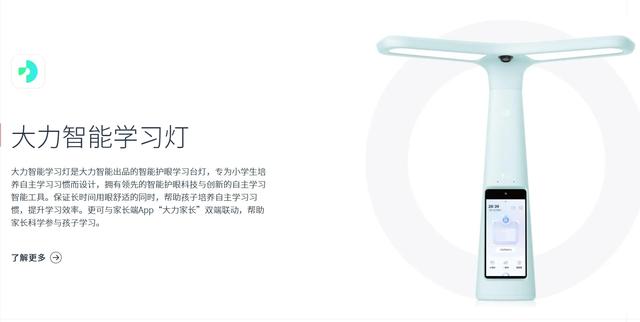
Source: Dali Education official website
According to LatePost, in addition to desk lamps, Byte is also developing a variety of educational hardware such as educational tablets, pocket learning printers, early childhood education machines, and dictionary pens. But so far, the product column of Dali Education’s official website only includes Dali intelligent learning lamps.
Then comes Byte’s closest hardware attempt to us: VR. In August 2021, Byte spent billions of yuan to acquire PICO, the domestic manufacturer with the largest VR shipment volume. Just five months before this acquisition, Byte had just spent tens of billions to acquire game developer Mutong Technology.
VR+ games are the path Meta has taken. As everyone knows what happened later, Byte’s gaming business and PICO laid off employees one after another, and Byte’s VR hardware road was temporarily set back.
Going back to the revelations about the development of AI hardware, Byte not only develops AI hardware itself, but also cooperates with external hardware companies. As Byte continues to develop bean bag capabilities to various hardware manufacturers, we will see their combination with large bean bag models on more hardware in the future.
This is consistent with the logic of Byte being an external large model service provider. For example, Byte does not directly sell mobile phones to generate revenue, but it can provide mobile phone manufacturers with large model software solutions based on mobile phones to obtain the benefits brought by the explosion of AI mobile phones. Increment.
Previously, Byte reached a cooperation with Samsung and became the other party's domestic large model partner. Some of the generative AI capabilities of the Galaxy Z Fold6 voice assistant Bixby are based on the large bean bag model of Byte Volcano Engine, similar to the combination of Apple's Siri and OpenAI GPT-4o.
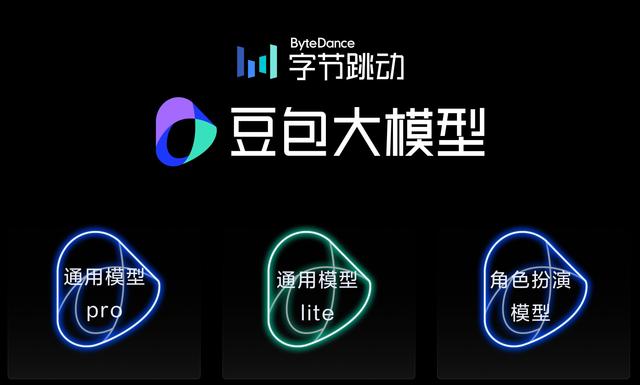
Source: ByteDance
In addition to Samsung, Honor and Xiaomi have also reached cooperation with the Doubao model. Honor's cooperation covers a variety of office scenarios such as document understanding, interactive Q&A, and intelligent assisted creation. Xiaomi's artificial intelligence assistant "Xiao Ai" is based on the Doubao model. Bringing users a more intelligent AI interactive experience.
A white paper on AI mobile phones released by IDC shows that AI mobile phone shipments are expected to reach 170 million units in 2024, accounting for 15% of overall smartphone shipments. It is not difficult to see that the AI mobile phone market alone may bring tens of billions of revenue to large model service providers such as Byte.
In other fields, according to Byte's official disclosure, the first batch of members to build retail AI solutions based on the Doubao model include Wumart Group, Douyin E-commerce, Douyin Life Services, Yum!, McDonald's, China Feihe, Haidilao, etc.
Members of the Automobile Large Model Ecological Alliance include Lynk & Co, Geely, GAC, Great Wall and other well-known car brands. In addition, Volcano Engine and Mercedes-Benz signed a strategic cooperation memorandum, and the two parties announced that they will cooperate in the fields of large models, generative artificial intelligence and big data technology.
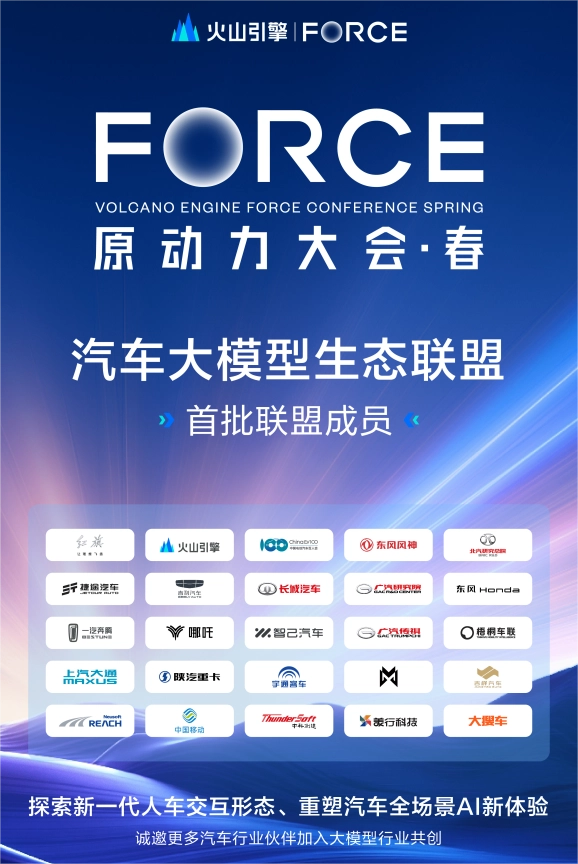
Source: Volcano Engine
In Lei Technology's view, the greatest significance of Byte's development of AI hardware is to run a large-scale model solution for a certain scenario, and use this as a case to provide large-scale model solutions to hardware manufacturers of the same category. After all, the revenue of a brand cannot be compared with that of the entire industry. Many cases in history tell us that merchants selling shovels may make more money and be safer than gold diggers.
Compared with other major Internet companies, Byte’s entry into the game is not too early. The first domestic Internet company to produce AI hardware should be Baidu.
In May 2023, Xiaodu, a subsidiary of Baidu, launched Qinghe, the first AI learning mobile phone, which integrates six major functions: mobile phone, dictionary pen, phone watch, translator, listening treasure, and word cards. According to data from JD.com, on June 18 this year, Xiaodu Qinghe brand ranked No. 1 among learning mobile phones in terms of sales volume. Later, Baidu also launched the first learning machine equipped with Baidu Wenxin large model-Xiaodu Learning Machine Z30.
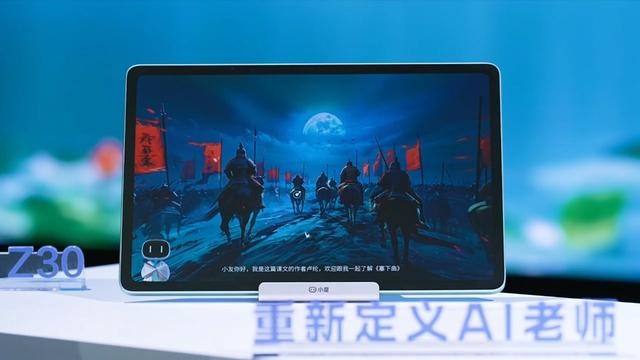
Source: Xiaodu
In addition to Baidu, Alibaba's Tmall Elf also launched the X6 speaker equipped with a large model; although Meituan did not personally make the hardware, it also launched the artificial intelligence voice interactive application "Qiaoyu Music Partner" installed on wearable devices. , used on Xiaotianzi Z10 watch.
There are many similar AI hardware, including mobile phones, PCs, home appliances... almost all product categories are actively integrating AI technology, which can not only increase sales or unit prices. More importantly, AI hardware that can run large models directly on the device has an incomparable allure that traditional hardware cannot match: a subversive experience at the interactive level.
In the past, operations that required multiple steps for users can now be solved perfectly with voice interaction, eliminating the N steps in the middle and bringing higher efficiency to users.
But the key factor that really determines the popularity of AI hardware is whether the product usage scenarios closely match user needs. This is clearly reflected in the pioneers of AI hardware innovation such as Ai Pin and Rabbit R1, and Tianhu’s start cannot escape the dismal ending.
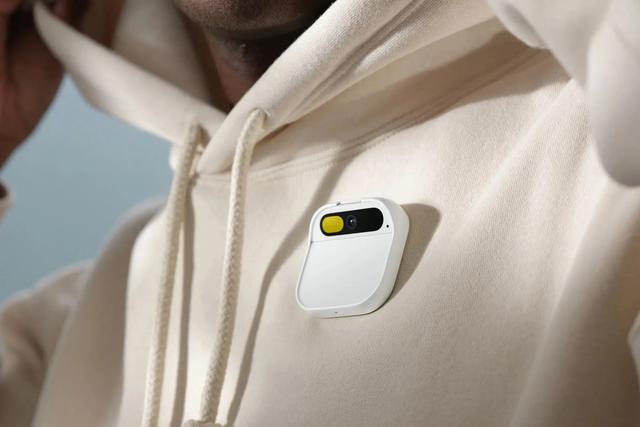
Source: Humane
For major Internet manufacturers, there are many hardware options, but there are relatively few scenarios suitable for AI hardware. The key to the current competition lies in the degree to which companies understand consumers, especially the scenario functions that users frequently use, or the frequently used scenario functions that have not been discovered.
When the function does not match the rigid demand scenario of the hardware product, it will inevitably create resistance to product sales. This has been reflected in Byte's previous cases of educational hardware and VR hardware. The principle is still the same, but now the protagonist is replaced by AI.
Especially for major Internet companies like Byte, which are also large model service providers, selling AI hardware is only one aspect. How to find functional solutions suitable for AI hardware scenarios and provide them to other hardware manufacturers is more critical.